Honda Jazz vs VW ID.4 – Which car suits you better?
Compare performance, boot capacity, efficiency and price at a glance.
Find out which car is the better choice for you – Honda Jazz or VW ID.4?
Costs and Efficiency:
Looking at overall running costs, both models reveal some interesting differences in everyday economy.
Honda Jazz has a convincingly advantage in terms of price – it starts at 23100 £, while the VW ID.4 costs 34600 £. That’s a price difference of around 11472 £.
Engine and Performance:
Power, torque and acceleration say a lot about how a car feels on the road. This is where you see which model delivers more driving dynamics.
When it comes to engine power, the VW ID.4 has a clearly edge – offering 340 HP compared to 122 HP. That’s roughly 218 HP more horsepower.
In acceleration from 0 to 100 km/h, the VW ID.4 is decisively quicker – completing the sprint in 5.40 s, while the Honda Jazz takes 9.40 s. That’s about 4 s faster.
In terms of top speed, the VW ID.4 performs minimal better – reaching 180 km/h, while the Honda Jazz tops out at 175 km/h. The difference is around 5 km/h.
There’s also a difference in torque: VW ID.4 pulls decisively stronger with 679 Nm compared to 253 Nm. That’s about 426 Nm difference.
Space and Everyday Use:
Whether family car or daily driver – which one offers more room, flexibility and comfort?
Both vehicles offer seating for 5 people.
In curb weight, Honda Jazz is decisively lighter – 1302 kg compared to 1975 kg. The difference is around 673 kg.
In terms of boot space, the VW ID.4 offers convincingly more room – 543 L compared to 304 L. That’s a difference of about 239 L.
In maximum load capacity, the VW ID.4 performs noticeable better – up to 1575 L, which is about 370 L more than the Honda Jazz.
When it comes to payload, VW ID.4 distinct takes the win – 551 kg compared to 388 kg. That’s a difference of about 163 kg.
Who wins the race?
The VW ID.4 proves to be outperforms in nearly all aspects and therefore becomes our DriveDuel Champion!
VW ID.4 is the better all-rounder in this comparison.
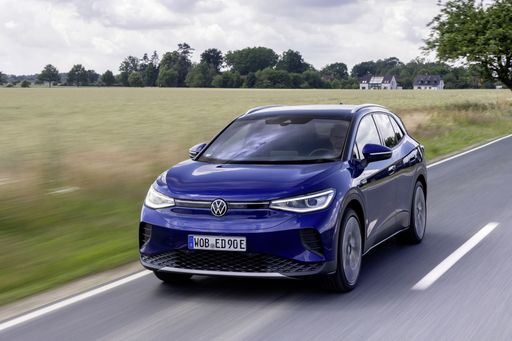
VW ID.4
Honda Jazz
The Honda Jazz stands out in the compact car category with its intelligently designed interior, offering a surprisingly spacious cabin that comfortably accommodates passengers and luggage. Its efficient hybrid powertrain ensures a smooth and economical driving experience, ideal for both urban commutes and longer journeys. Furthermore, the Jazz is equipped with a range of advanced safety features, providing peace of mind while on the road.
details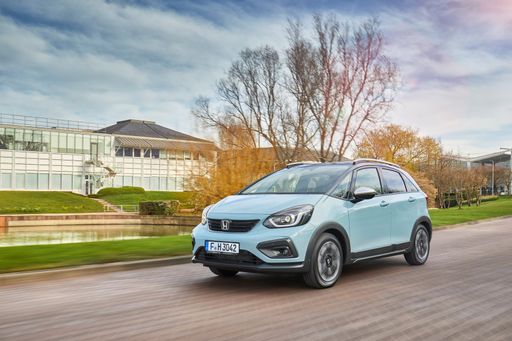 @ hondanews.eu
@ hondanews.eu
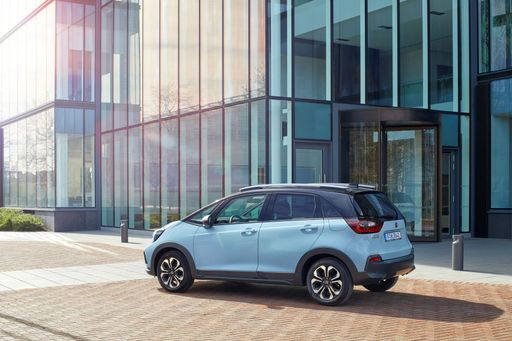 @ hondanews.eu
@ hondanews.eu
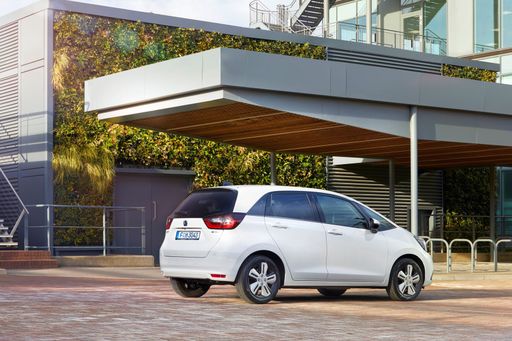 @ hondanews.eu
@ hondanews.eu
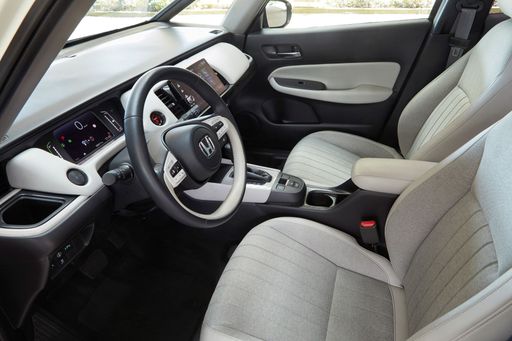 @ hondanews.eu
@ hondanews.eu
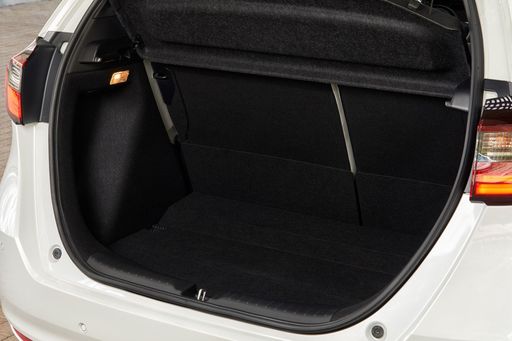 @ hondanews.eu
@ hondanews.eu
VW ID.4
The VW ID.4 represents Volkswagen's commitment to the electric vehicle market, combining contemporary design with sustainability. Its spacious interior and intuitive technology make it an attractive choice for those seeking comfort and innovation in an eco-friendly package. With a focus on electric performance and practicality, this car is set to be a popular option among environmentally-conscious drivers.
details @ Volkswagen
@ Volkswagen
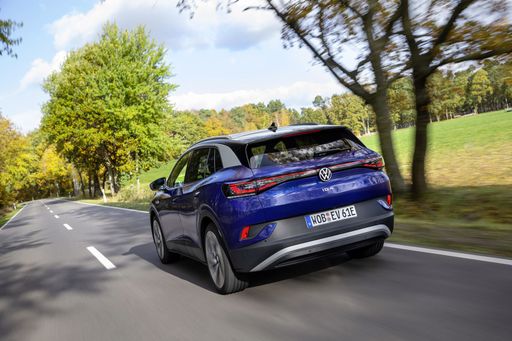 @ Volkswagen
@ Volkswagen
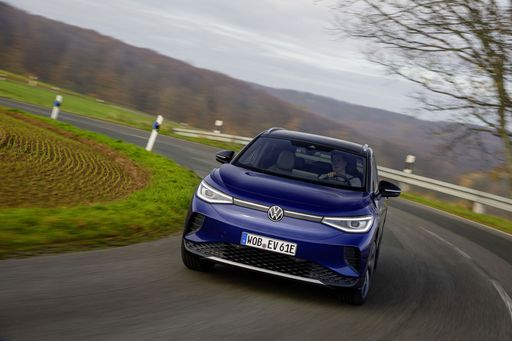 @ Volkswagen
@ Volkswagen
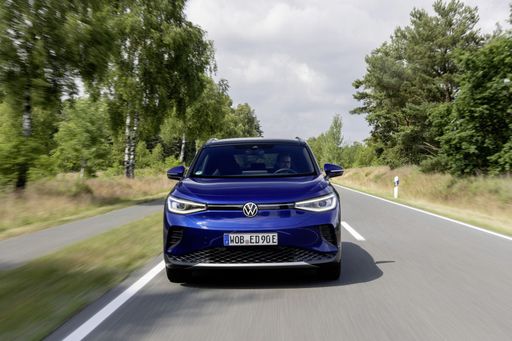 @ Volkswagen
@ Volkswagen
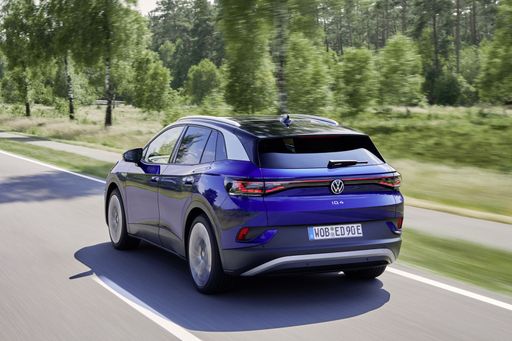 @ Volkswagen
@ Volkswagen
 @ Volkswagen
@ Volkswagen
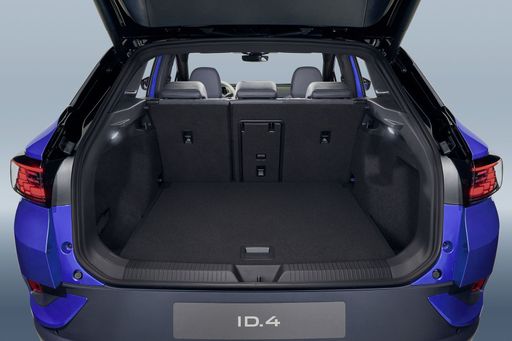 @ Volkswagen
@ Volkswagen
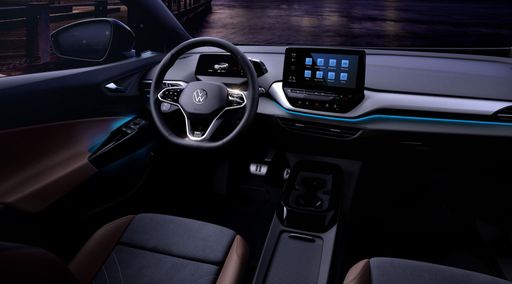 @ Volkswagen
@ Volkswagen

|

|
|
|
|
Costs and Consumption |
|
|---|---|
|
Price
23100 - 26700 £
|
Price
34600 - 47200 £
|
|
Consumption L/100km
4.5 - 4.8 L
|
Consumption L/100km
-
|
|
Consumption kWh/100km
-
|
Consumption kWh/100km
15.6 - 17 kWh
|
|
Electric Range
-
|
Electric Range
356 - 569 km
|
|
Battery Capacity
-
|
Battery Capacity
52 - 77 kWh
|
|
co2
102 - 108 g/km
|
co2
0 g/km
|
|
Fuel tank capacity
40 L
|
Fuel tank capacity
-
|
Dimensions and Body |
|
|---|---|
|
Body Type
Hatchback
|
Body Type
SUV
|
|
Seats
5
|
Seats
5
|
|
Doors
5
|
Doors
5
|
|
Curb weight
1302 - 1320 kg
|
Curb weight
1975 - 2248 kg
|
|
Trunk capacity
304 L
|
Trunk capacity
543 L
|
|
Length
4089 - 4105 mm
|
Length
4582 - 4584 mm
|
|
Width
-
|
Width
1852 mm
|
|
Height
1526 - 1556 mm
|
Height
1619 - 1634 mm
|
|
Max trunk capacity
1205 L
|
Max trunk capacity
1575 L
|
|
Payload
370 - 388 kg
|
Payload
511 - 551 kg
|
Engine and Performance |
|
|---|---|
|
Engine Type
Full Hybrid
|
Engine Type
Electric
|
|
Transmission
Automatic
|
Transmission
Automatic
|
|
Transmission Detail
CVT
|
Transmission Detail
Reduction Gearbox
|
|
Drive Type
Front-Wheel Drive
|
Drive Type
Rear-Wheel Drive, All-Wheel Drive
|
|
Power HP
122 HP
|
Power HP
170 - 340 HP
|
|
Acceleration 0-100km/h
9.4 - 9.7 s
|
Acceleration 0-100km/h
5.4 - 9 s
|
|
Max Speed
175 km/h
|
Max Speed
160 - 180 km/h
|
|
Torque
253 Nm
|
Torque
310 - 679 Nm
|
|
Number of Cylinders
4
|
Number of Cylinders
-
|
|
Power kW
90 kW
|
Power kW
125 - 250 kW
|
|
Engine capacity
1498 cm3
|
Engine capacity
-
|
General |
|
|---|---|
|
Model Year
2023
|
Model Year
2023 - 2025
|
|
CO2 Efficiency Class
C
|
CO2 Efficiency Class
A
|
|
Brand
Honda
|
Brand
VW
|
Is the Honda Jazz offered with different drivetrains?
The Honda Jazz is offered with Front-Wheel Drive.
The prices and data displayed are estimates based on German list prices and may vary by country. This information is not legally binding.
